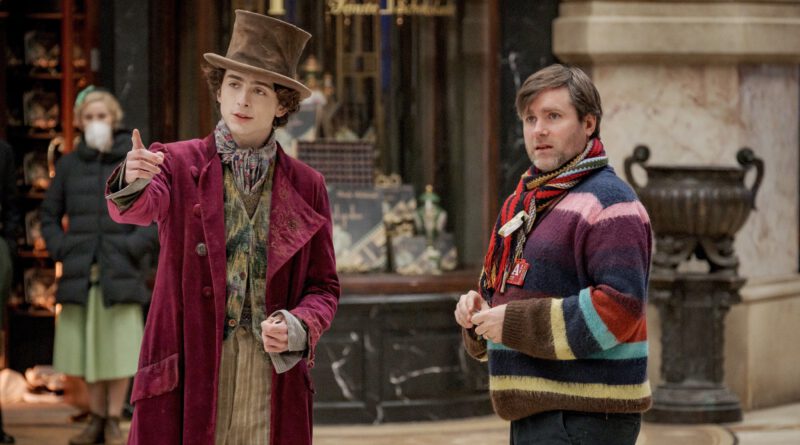From ‘Paddington’ to ‘Wonka,’ Paul King reveals the risks and rewards of adapting childhood classics
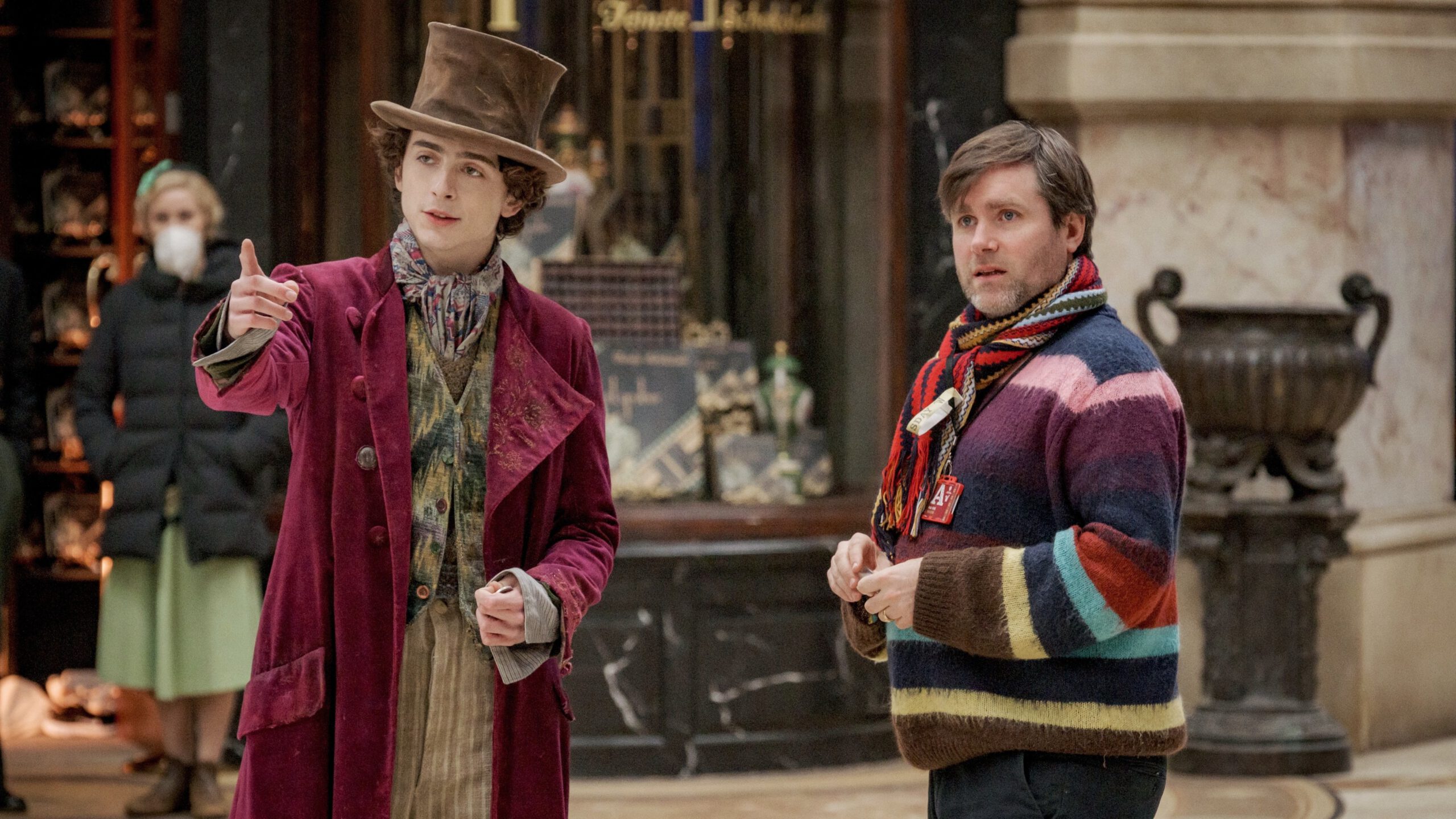
After Paddington 2 received wild praise, including the rare accomplishment of a 100% on Rotten Tomatoes, writer/director Paul King had a daunting decision before him. What to do next?
Whatever it was had a tough act to follow, so why not swing big by tackling the origin story of Roald Dahl’s most famous character? To call Wonka a risky move would be a massive understatement, as the internet predictably met the project’s promotions with ire and mockery. But when Mashable spoke with King just days before his new film hit theaters, he was filled with contagious excitement when discussing how this sweet but daring prequel starring Timothée Chalamet came to be.
“Obviously, the response to Paddington 2 was very lovely,” King said. “Where to go after that? I really wasn’t sure.” Then producer David Heyman pitched the Wonka origin concept to King and his writing partner Simon Farnaby.
“It felt like a really good fit for my passions,” King shared. “I knew Charlie and the Chocolate Factory as a child. I’d read the book from cover to cover a million times, and I loved the ’71 movie [Willy Wonka and the Chocolate Factory, starring Gene Wilder] as a kid.”
Still, a pang of reluctance hit. “I was a bit nervous because origin stories don’t always feel essential,” King admitted, “and I was aware this is such a beloved property.”
Despite the risks, the filmmaker’s enthusiasm urged him onward as he dug back into Dahl. “I’d remembered Willy Wonka and the factory, and the Oompa Loompas, and all the colorful characters, but I’d kind of forgotten what a beautifully emotional story it is. You’re following this poor, young, suffering kid. And by the end, when Willy gives him the factory, I was just in floods of tears. I’d really forgotten that aspect of the book.”
Revisiting Dahl’s book and the Wilder movie revealed to King what his take on Wonka might have in common with the winsome Paddington and its adored sequel. “I was like, ‘Oh, this has got the larger-than-life comedy, slightly fantasy, surreal elements that I love — and a deep beating heart,'” King reflected. “This is what I’ve been trying to do all the way through the Paddington films. And I realized it probably came from reading Dahl as a kid.” From there, he was eager to “play in [Dahl’s] playground.”
Wonka pulls from more than Dahl’s Charlie and the Chocolate Factory.
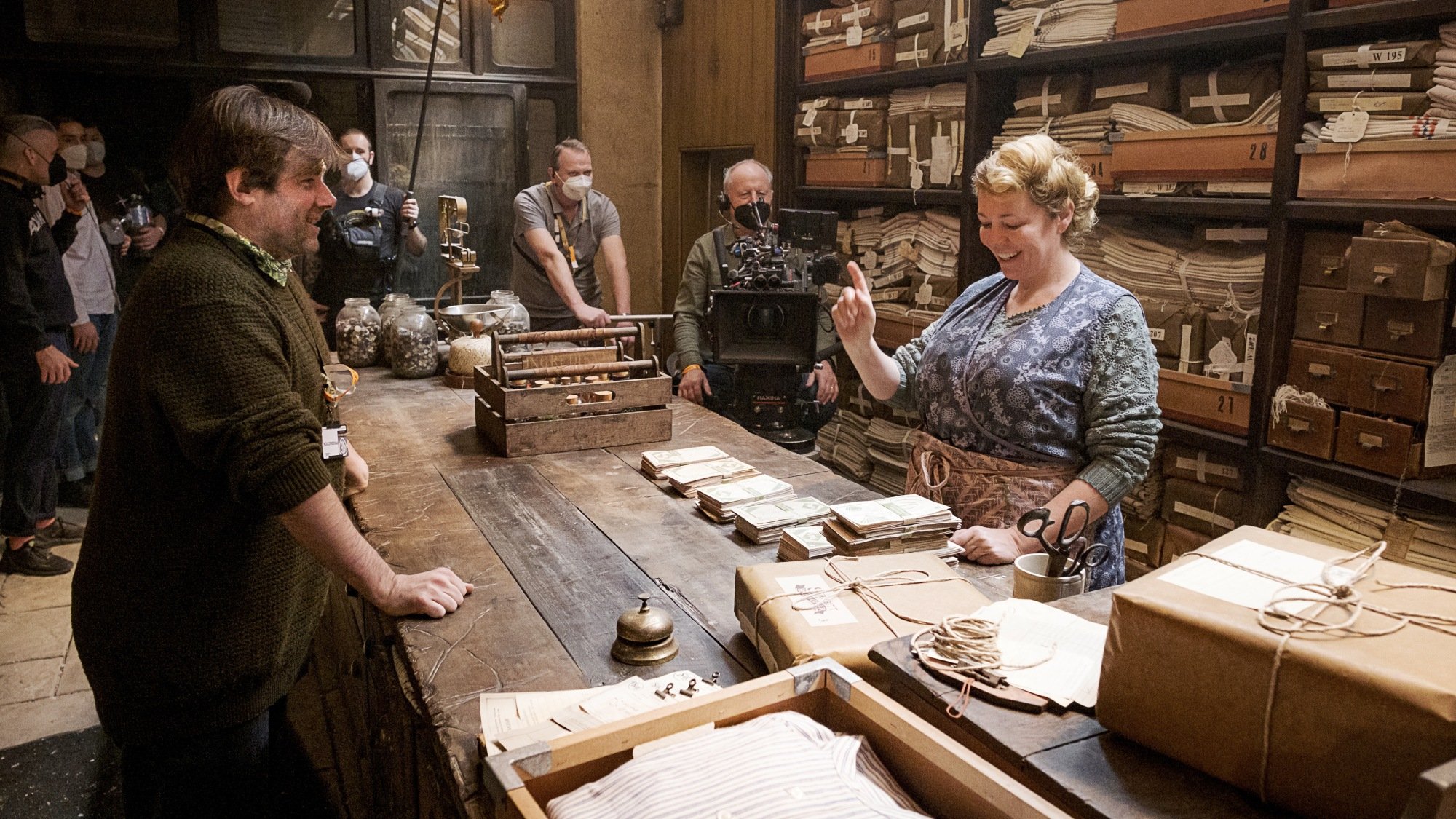
In reverse-engineering a backstory for Willy Wonka, King began with, of course, the 1964 children’s book Charlie and the Chocolate Factory. “There’s lots of clues in there,” King said, adding, “[Dahl] mentioned Slugworth, Ficklegruber, and Prodnose, and how there had been spies and how they conspired against him.”
From there, King dreamed up the chocolate cartel that plays as Wonka‘s central antagonist — with a hint of Fantastic Mr. Fox. “I was like, ‘Oh, you could do a sort of Boggis, Bunce, and Bean, [a] three-headed monster villain,” King recalled, before dropping another Dahl inspiration for the snarling Scrubbit, a fearsome landlady played by Academy Award winner Olivia Colman. “I was really reading all of Dahl and just trying to channel him, and there’s a great story he wrote called ‘The Landlady,’ about somebody who captures people and keeps them all in her basement. It’s completely terrifying. It’s a grown-up story rather than a kids story.”
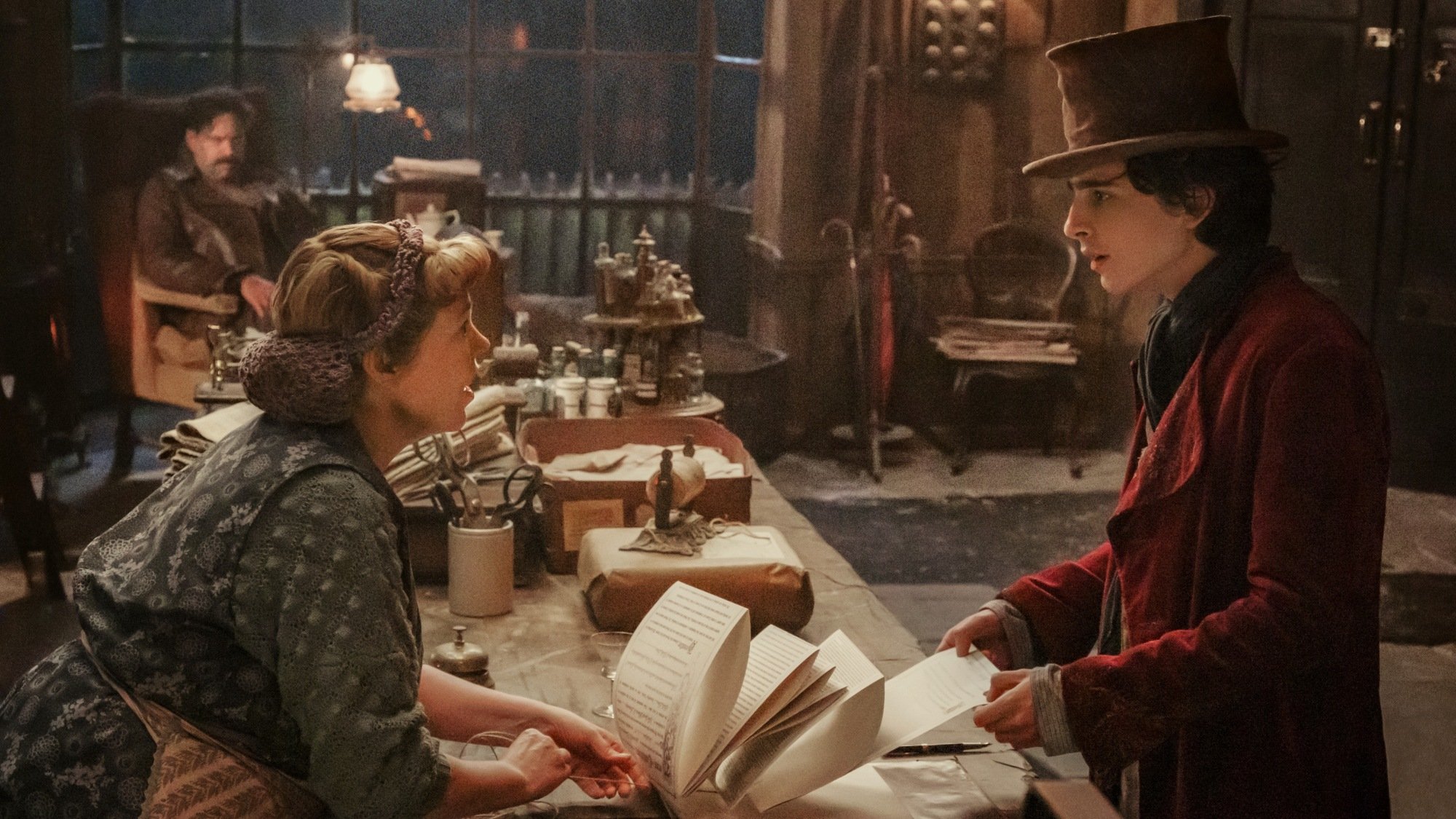
But this maturely menacing concept dovetailed with a gag from the ’71 film involving tricky fine print. “I liked the idea of using [‘The Landlady’] and the small-print idea from the Willy Wonka movie — just diving into that world and piecing it together.”
Growing up with Wilder’s version of Willy Wonka, King wanted to connect the two through visual cues and the script. His Wonka pulls inspiration from Mel Stuart’s film, like the look of the Oompa Loompas and bits of the costume – including the eponymous protagonist’s top hat and velvet coat. Plus, King worked with Chalamet to weave in bits of choreography that reflect Wilder’s walk and the “whish whish with the cane” from the first film. “That stuff’s too good not to use,” King explained.
At times, recreating this world of wonders that had awed him as a child became unreal. “For me, that was part of the playground that you go, ‘Oh, I get to do a “Pure Imagination” song and an Oompa Loompa song. Great!’ Some of the best times were when we had this huge orchestra in Abbey Road, and they all were [playing the Oompa Loompa theme] bop bop bop bop. And I get to be paid for this! This is great.”
How Wonka compares to Paddington and Mr. Smith Goes to Washington.
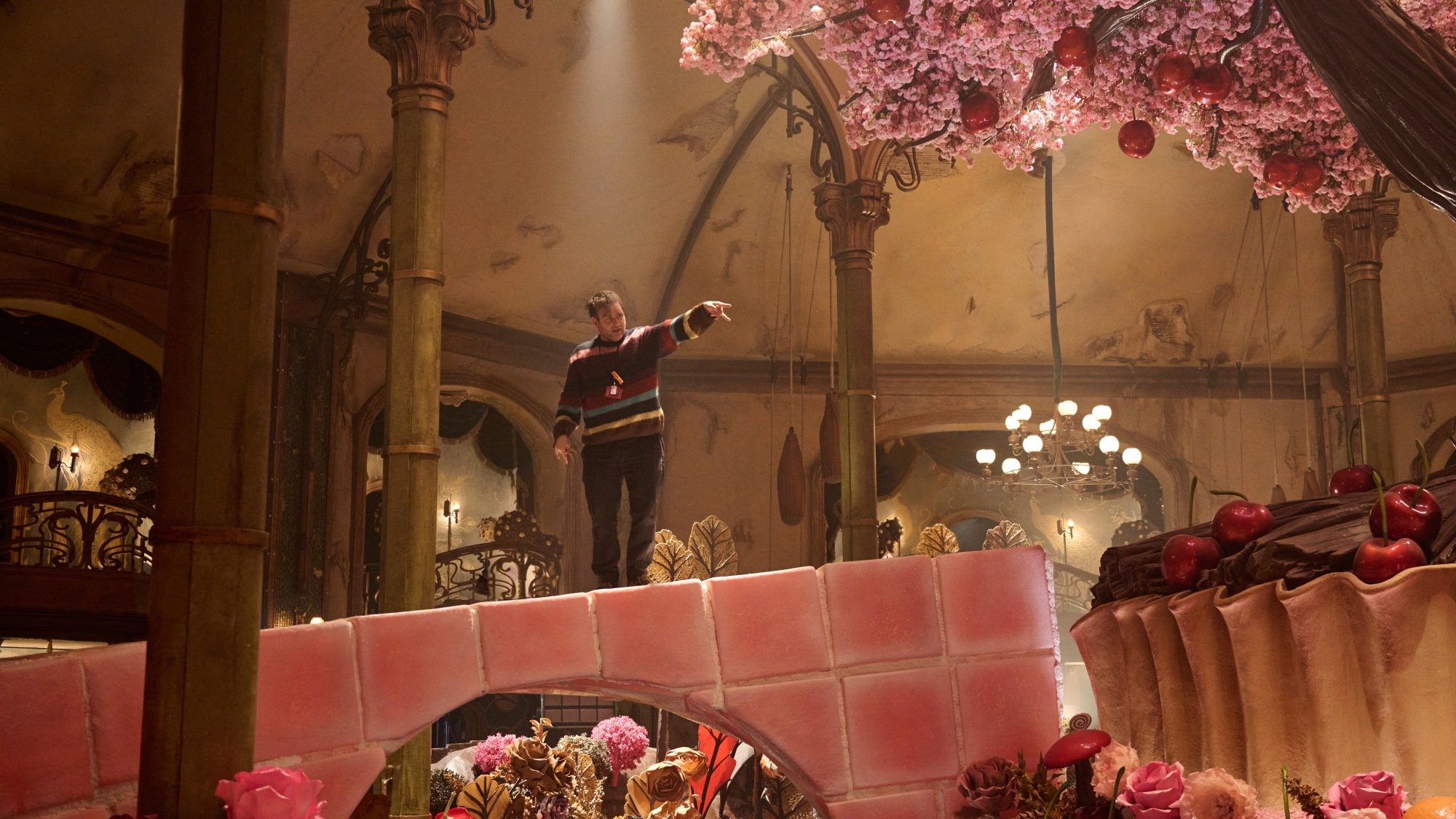
Both films center on a guileless dreamer rolling into a metropolis that’s a bit wary of the newcomer. But despite being peopled with quirky characters, the worlds themselves strike King as very different.
“Paddington lives in a very warm, fuzzy world where there’s the odd rotten egg, but most people are essentially kind and decent and generous. That’s a very positive view of humanity,” King offered. “Dahl’s universe is extremely different. Most people are absolutely ghastly, awful, selfish swine. And that’s great fun to write. That felt like a nice pivot for me, because [in Dahl’s work] everyone is an unredeemed horror, apart from the occasional kind of shining soul.”
Plucky and determined, Paddington and Wonka are resilient rebels against cynicism, so their movies have a thematic throughline in common. This battle for sincerity and empathy speaks to King, who noted a personal inspiration from Classical Hollywood. “I’m a huge Frank Capra fan, and he directed the definitive ‘little man in the big cynical world’ movies, like Mr. Smith Goes to Washington,” the English helmer said, referring to the Jimmy Stewart-fronted political dramedy about an everyman who becomes a senator. Though Mr. Smith is intended by a corrupt crew of politicians to be little more than a nodding stooge, this newcomer to Congress fights for what’s right until he literally collapses.
“I must have seen it about 100 times,” King said of the 1939 movie. “It really touched my heart.” This inspired him to make young Wonka an outsider. “Willy Wonka isn’t somebody who goes along with the world as it is,” King reasoned. “He’s a dreamer and an inventor. And he’s a driver of change.”
A crucial clue to the inner workings of Wonka was found in the ’71 movie’s most memorable song. “There’s this gorgeous line in ‘Pure Imagination,’ where it goes, ‘Want to change the world? There’s nothing to it.'” King explained, “Ten syllables, and it’s more profound than most people’s life’s work.” This breezy determination brought him back to Capra’s hero.
“I was really interested in the idea of taking this Mr. Smith-type character who comes to this city, like [Smith] goes to Washington, and assumes that people are kind and decent and good — that if you go in with an open heart, the world will be fine,” King said, “but obviously [Wonka] discovers it’s a more cynical and Dahl-like universe than he imagined. And then he has to kind of summon the spirit of courage to go, ‘Well, I’m gonna have to change the world.’
“It’s those people who do that are few and far between,” King concluded, “and God bless every one of them.”
